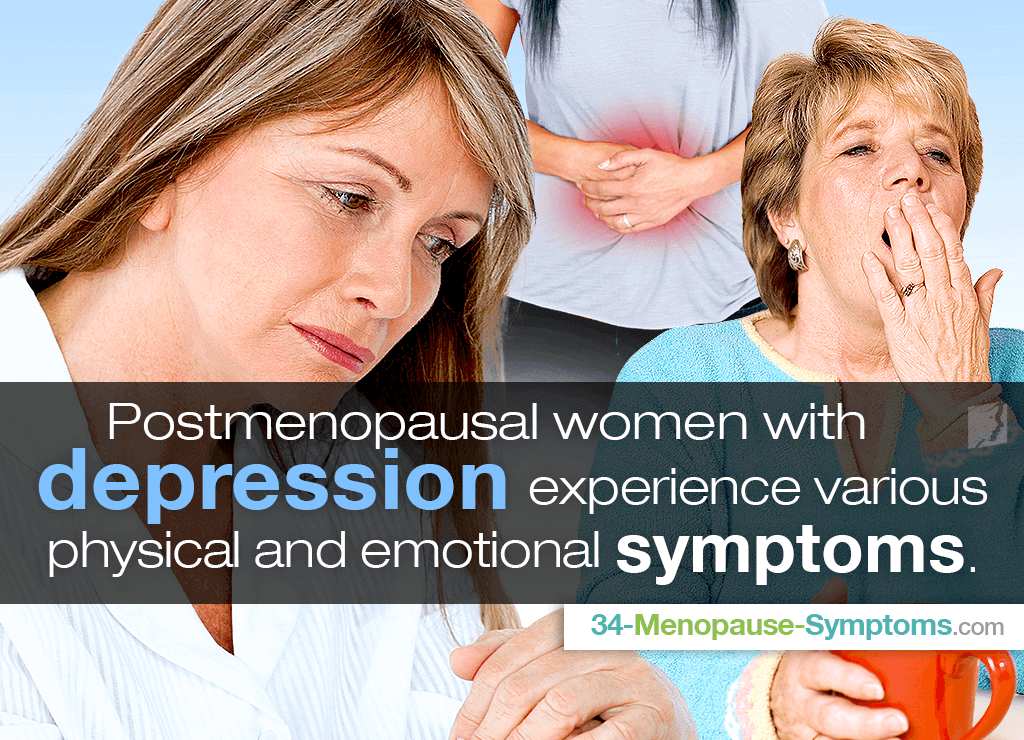Depression is a mental health disorder involving feelings of lethargy and hopelessness that last for an extended period of time. Postmenopausal depression refers to depression that occurs after a woman passes her menopause date. Continue reading to find out more about identifying and treating postmenopausal depression to get back to living like you were before.
Why Does Postmenopausal Depression Occur?
Because women are 70% more likely than men to experience depression, it is believed that most instances of postmenopausal depression are due to hormonal changes, especially in regard to estrogen.
Estrogen and the feel-good hormone serotonin have been accredited for greatly influencing women's cognition. Although the exact relationship between the two is yet to be discovered, it is known that an estrogen deficiency - as what happens when ovarian estrogen production halts - negatively affects mood and behavior, thus leading to postmenopausal depression.
Also, women are five times more likely to suffer from postmenopausal depression if they experienced depression earlier in their lives.
Symptoms of Postmenopausal Depression
The symptoms of depression are indiscriminate, but postmenopausal women with depression tend to experience certain symptoms more so than premenopausal women. Signs and symptoms of postmenopausal depression include:
- Feelings of hopelessness and numbness
- Lack of interest in hobbies and work
- Thoughts of suicide or self-harm
- Reduced mobility
- Digestive problems and cramps
- Tiredness and fatigue
- Changes in appetite
- Nervous tension
Most people who suffer from depression experience a combination of physical and emotional symptoms. Depression is not just a psychological condition. It can also affect the body physically. Sometimes, these symptoms may overlap with other symptoms of menopause and postmenopause.
How to Treat Postmenopausal Depression
Once the condition is properly diagnosed, there are several depression treatments and approaches available to consider pursuing.
First of all, it is important to have a support network, whether in person or on online forums, where women going through the same thing can share experiences and tips. Also, more structured counseling and talk therapy can also be of great help as they help women look at their experience from a different angle.
For severe and chronic depression, medication may be recommended on a case-by-case basis such as antidepressants. For postmenopausal women, hormone replacement therapy (HRT) can be beneficial because it counters low hormone levels, although it does involve additional serious side effects. Likewise, many women choose to naturally combat postmenopausal depression with hormone-balancing supplements.
Either way, a doctor or psychiatrist can assess the risks and benefits given each person's medical history and preferences, and then monitor each patient closely. The dosage and type of medication can be changed as necessary.
Key Takeaways
Depression can be difficult to face, and during postmenopause, many factors can contribute to it, but the most common is due to hormonal imbalance. You may start to feel hopeless and suicidal with further symptoms of fatigue, changes in appetite, nervous tension, and more. However, rest assured that you shouldn't have to suffer alone with this treatable condition. Look into the varying treatment options available to you, and soon you will be up and at it just like before.
Sources
- Amin, Z. et al. (2005). Effect of estrogen-serotonin interactions on mood and cognition. Behavioral and Cognitive Neuroscience Reviews, 4(1), 43-58. Doi: 10.1177/1534582305277152
- National Institute of Mental Health. (n.d.). Depression in Women: 5 Things You Should Know | Depression. Retrieved September 28, 2018, from https://www.nimh.nih.gov/health/publications/depression-in-women/index.shtml | https://www.nimh.nih.gov/health/topics/depression/index.shtml




